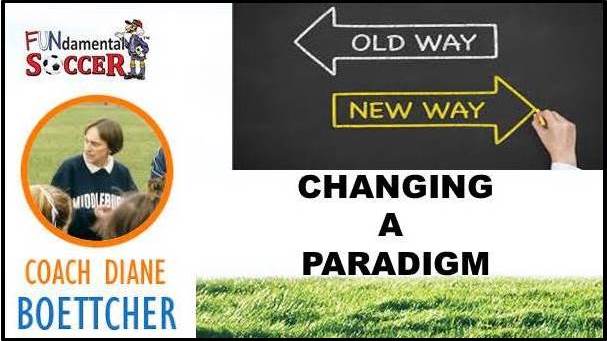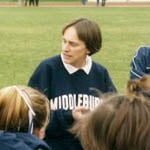First and foremost, what we coach is Soccer. Jimmy Dugan didn’t get it in “A League of Their Own,” and that’s the farce that makes the movie. Nowadays, coaching girls is no novelty to men, and soccer dads seek some insight into the tribe of girls they are leading. Leading truly is the assignment; as Anson Dorrance once said of his two University of North Carolina teams, “Lead women. Drive men”.

Dorrance once talked about the differences between his two teams and how he related to each undergraduate set. The women’s team wanted to sit in a circle and stretch before starting training. He felt this was wasted time until he got pushback from the players for cutting into that time. It was important social and connection time after a hard day in class.
Young girls can be chattier than some men are used to. Resist the idea of ignoring the chatter and certainly don’t suppress it. Making connections with kids is a reason to coach. Lifelong friendships are a reward for playing Soccer. To paraphrase the Yogi: “Soccer is ninety percent mental. The other half is physical.” So, ninety percent of coaching is reaching kids.

Look your players in the eye when you speak and when you listen. This is good advice, no matter which gender the players are. For some girls, eye contact matters much more because they are seeking a positive male role model in their lives. In fact, research on the topic includes reasons some girls may not meet eye contact. It can be cultural or for other reasons where a coach might be a positive influence.

When your players talk, resist the impatience that cuts in as they speak. Many a husband knows the look from finishing his wife’s sentences. Also, “up speak” comes from a kid’s need to be validated in what she says. Make Soccer the affirmative place where kids feel heeded. Open your mouth less, and they will finish their thoughts and move on. Sure, you’re there to focus them on training and games. You’ll set the tone by your actions, not by squelching their dialogue. Your up-tempo training sessions will set the tone for them to be all business on the field.
Yes, there are mean girls and subtext social interactions. There’s a dog whistle that whizzes by coaches, male or female. A high school coach once said, “When she’s on the field, she’s your best friend.” Players must learn to get the job done no matter who they work with. Taking a realistic view of others can be a great lesson for later dealing with coworkers. Coaches can encourage it with coaching points such as, “Use a leading pass to Rosie, and she can serve into the box for you.” Or a coach of an older team can go hardcore and train the two in a high-intensity functional workout that focuses their common evil eye on the coach.

For relatively young girls, what they seek more from a male coach than a female coach is, simply put, magic. It’s hard to define that, but suffice it to say there’s a bit of Disney princess involved. Just go with it. There’s not much unique you’ll need to do. You’re already invested in the ability to be princely. Your positive attention makes the magic. Female coaches roll their eyes on this one. Perhaps one day, a critical mass of women coaching boys will point out quirks in that coaching relationship.
In fact, female coaches are not more outstanding authorities in coaching girls than male coaches. All coaches work from within their personalities and use their methods to resonate with players. So little is gender specific. The overwhelming work of soccer coaching is game-specific.

My coaching philosophy.
- I’m like Anson Dorrance, who unashamedly says he steals coaching ideas from everybody.
- As did most coaches, I unashamedly stole from him. I believe in a high-energy game (it’s cold in the east during soccer season.)
- I believe wholeheartedly, as Lao Tse said, “The leader who leads best is noticed least.” The players believe they accomplish things themselves.
- But, the true genius in coaching comes when each feels fully employed and collectively optimally deployed.





